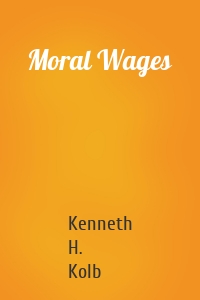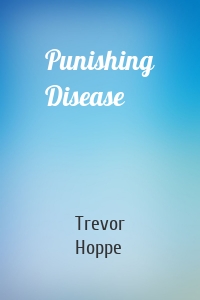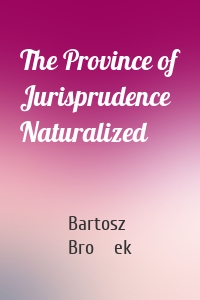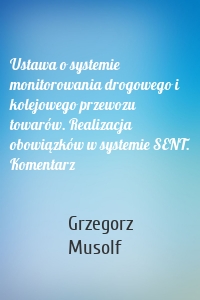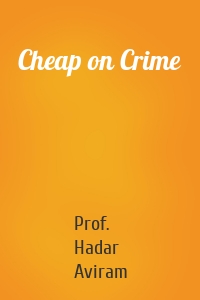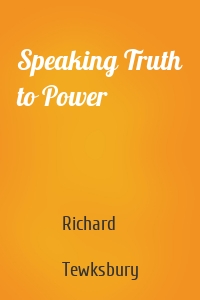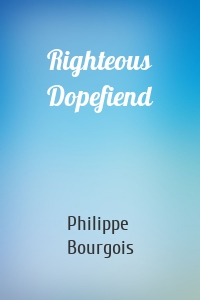Юриспруденция, право
7421 кн.
Moral Wages
Moral Wages offers the reader a vivid depiction of what it is like to work inside an agency that assists victims of domestic violence and sexual assault. Based on over a year of fieldwork by a man in a setting many presume to be hostile to men, this ethnographic account is unlike most research on the topic of violence against women. Instead of focusing on the victims or perpetrators of abuse, Moral Wages focuses exclusively on the service providers in the middle. It shows how victim advocates...
| Автор | Kenneth H. Kolb |
Caught Up
From home, to school, to juvenile detention center, and back again. Follow the lives of fifty Latina girls living forty miles outside of Los Angeles, California, as they are inadvertently caught up in the school-to-prison pipeline. Their experiences in the connected programs between “El Valle” Juvenile Detention Center and “Legacy” Community School reveal the accelerated fusion of California schools and institutions of confinement. The girls participate in...
| Автор | Jerry Flores |
Punishing Disease
From the very beginning of the epidemic, AIDS was linked to punishment. Calls to punish people living with HIV—mostly stigmatized minorities—began before doctors had even settled on a name for the disease. <I>Punishing Disease </I>looks at how HIV was transformed from sickness to badness under the criminal law and investigates the consequences of inflicting penalties on people living with disease. Now that the door to criminalizing sickness is open, what other...
| Автор | Trevor Hoppe |
Methamphetamine
Methamphetamine: A Love Story presents an insider’s view of the world of methamphetamine based on the life stories of thirty-three adults formerly immersed in using, dealing, and manufacturing meth in rural Oklahoma. Using a respectful tone towards her subjects, Shukla illuminates their often decades-long love affair with the drug, the attractions of the lifestyle, the eventual unsustainability of it, and the challenges of exiting the life. These personal...
| Автор | Rashi K. Shukla |
Twilight Policing
South Africa boasts the largest private security sector in the entire world, reflecting deep anxieties about violence, security, and governance. <I>Twilight Policing </I>is an ethnographic study of the daily policing practices of armed response officers—a specific type of private security officer—and their interactions with citizens and the state police in Durban, South Africa. This book shows how their policing practices simultaneously undermine and support the state, resulting in...
| Автор | Dr. Tessa G. Diphoorn |
Miller's Children
Miller’s Children is a passionate and comprehensive look at the human consequences of the US Supreme Court’s decision in the case of Miller v. Alabama, which outlaws mandatory life-without-parole sentences for juvenile murderers. The decision to apply the law retroactively to other cases has provided hope to those convicted of murders as teenagers and had been incarcerated with the expectation that they would never leave prison until their...
| Автор | James Garbarino |
Cheap on Crime
After forty years of increasing prison construction and incarceration rates, winds of change are blowing through the American correctional system. The 2008 financial crisis demonstrated the unsustainability of the incarceration project, thereby empowering policy makers to reform punishment through fiscal prudence and austerity. In <I>Cheap on Crime, </I>Hadar Aviram draws on years of archival and journalistic research and builds on social history and economics literature to show the...
| Автор | Prof. Hadar Aviram |
Boats, Borders, and Bases
Discussions about U.S. migration policing have traditionally focused on enforcement along the highly charged U.S.-Mexico boundary. Enforcement practices such as detention policies designed to restrict access to asylum also transpire in the Caribbean. <I>Boats, Borders, and Bases</I> tells a missing, racialized history of the U.S. migration detention system that was developed and expanded to deter Haitian and Cuban migrants. Jenna M. Loyd and Alison Mountz argue that the U.S. response...
| Автор | Jenna M. Loyd |
Speaking Truth to Power
Domestic drug enforcement takes many forms, from the rural patrol officer who happens upon a small-scale mobile “shake and bake” methamphetamine lab during a routine traffic stop, to the city narcotics detective who initiates a low-level buy-bust operation that nets a few hits of crack cocaine on the street corner, to the local, state, and federal agents working in multiagency task forces that coordinate a sting operation that nets thousands of kilos of near-pure cocaine...
| Автор | Richard Tewksbury |
Green Criminology
This groundbreaking text provides students with an overview and assessment of green criminology as well as a call to action. <I>Green Criminology </I>draws attention to the ways in which the political-economic organization of capitalism causes ecological destruction and disorganization. Focusing on real-world issues of green crime and environmental justice, chapters examine ecological withdrawals, ecological additions, toxic towns, wildlife poaching and trafficking,...
| Автор | Michael J. Lynch |
Righteous Dopefiend
This powerful work of gonzo journalism, predating the widespread acknowledgement of the opioid epidemic as such, immerses the reader in the world of homelessness and drug and alcohol abuse in the contemporary United States. For over a decade Philippe Bourgois and Jeff Schonberg followed a social network of two dozen heroin injectors and crack smokers in the San Francisco drug scene, accompanying them as they scrambled to generate income through burglary, larceny, panhandling, recycling, and day...
| Автор | Philippe Bourgois |
The Upper Limit
Since 1993, crime in the United States has fallen to historic lows, seeming to legitimize the country’s mix of welfare reform and mass incarceration. <I>The Upper Limit </I>explains how this unusual mix came about, examining how, beginning in the 1970s, declining living standards for the poor have defined social and penal policy in the United States, making welfare more restrictive and punishment harsher. François Bonnet shows how low-wage work sets the upper...
| Автор | François Bonnet |



